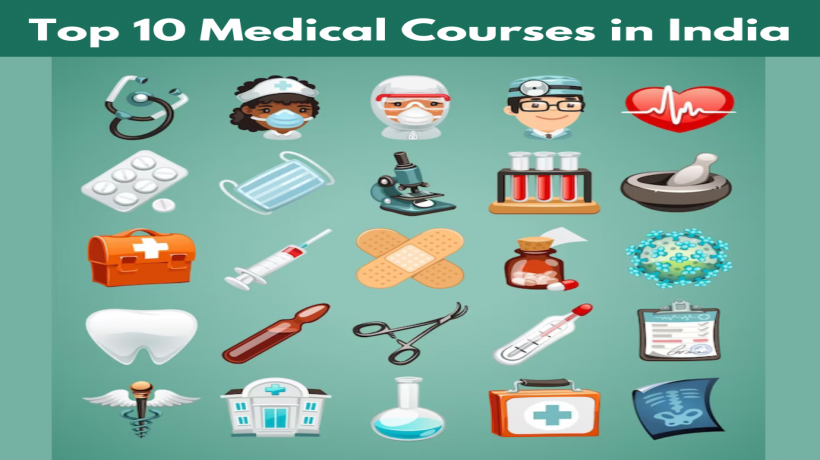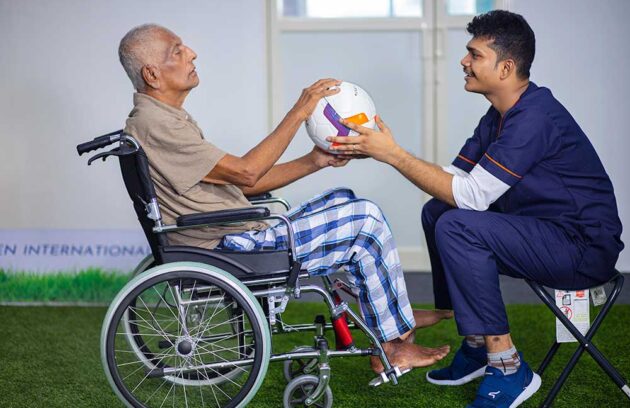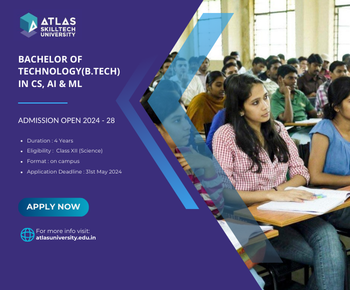Top 10 Medical Courses after 12th class in India
In this blog, we will discuss the top 10 courses in the medicine sector for medical students of India.
November 22, 2023
Career Expert & Blogger

Introduction
For students who have finished their 12th standard class, a career in medicine brings them a world of chances and possibilities. The medical industry offers many fascinating and fulfilling job options outside of becoming a doctor. After finishing the 12th class, we will explore some of the many job opportunities in the medical industry in this blog.
1. Bachelor of Medicine, Bachelor of Surgery (MBBS):
The most conventional and well-known route in medicine is earning an MBBS degree, which serves as the starting point for a career in medicine. Upon completion of a five-and-a-half-year curriculum that includes a one-year internship, candidates are qualified to work as licenced physicians.
2. Bachelor of Dental Surgery (BDS):
Another well-liked medical specialisation is dentistry. Students can concentrate on oral health and become dentists by pursuing a BDS degree. In order to maintain general health, dentists are essential in both treating and preventing oral illnesses.
3. Bachelor of Pharmacy (B.Pharm):

A vital component of the healthcare system is the chemist. Students who get a B.Pharm degree are well-versed in pharmaceuticals, medication research, and application. Pharmacists can work in a variety of environments, such as pharmacies, hospitals, and the pharmaceutical sector.
4. Bachelor of Ayurvedic Medicine and Surgery (BAMS):

BAMS is an excellent choice for anyone with an interest in conventional medicine. It entails studying Ayurveda, an antiquated Indian medical practise. Graduates might pursue careers as holistic healers by becoming Ayurvedic physicians and practitioners.
5. Bachelor of Homeopathic Medicine and Surgery (BHMS):
A form of alternative treatment called homoeopathy emphasises complete recovery. Those who pursue BHMS can become homoeopathic physicians, treating a wide range of illnesses using natural medicines.
6. Bachelor of Physiotherapy (BPT):
Physiotherapists are essential to the improvement of physical health and rehabilitation. Anatomy, physiology, and therapeutic activities are the main topics of BPT programmes. Graduates might establish their own practises or work in clinics and hospitals.
7. Bachelor of Science in Nursing (B.Sc Nursing):

The noble profession of nursing include providing patient care as well as supporting physicians in a variety of medical settings. Programmes in B.Sc. Nursing prepare students to work as registered nurses, which improves the provision of healthcare.
8. Bachelor of Occupational Therapy (BOT):

Occupational therapists who hold a bachelor's degree in occupational therapy (BOT) assist people in overcoming mental and physical obstacles that prevent them from carrying out their everyday tasks. The abilities required to evaluate and carry out therapeutic interventions are taught in BOT programmes.
9. Bachelor of Medical Laboratory Technology (BMLT):

By examining medical samples, medical laboratory technicians are essential to the diagnosis of many illnesses. Instrumentation, laboratory procedures, and result interpretation are all included in BMLT programmes.
10. Bachelor of Optometry (B.Optom)
Optometrists are specialists in vision and eye care. Subjects covered in optometry programmes include optics, refraction, and eye disorders. Graduates can work in hospitals, clinics, or even launch their own businesses.
Conclusion
The medical field offers a diverse range of career options beyond traditional medical practice. Whether one aspires to be a doctor, dentist, pharmacist, or pursue alternative medicine, there are numerous paths to explore. Each career option contributes to the overall healthcare system, playing a vital role in promoting the well-being of individuals and communities. As students embark on their journey after the 12th class, it's important to consider their interests, values, and the specific contribution they want to make to the field of medicine. The possibilities are vast, and with the right education and dedication, a fulfilling and impactful medical career awaits.



